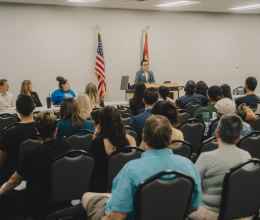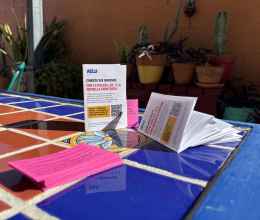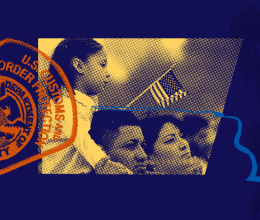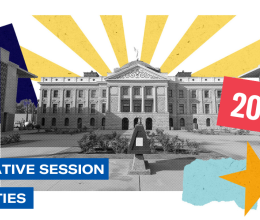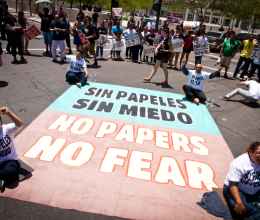
ACLU of Arizona, Los Abogados to host a clinic on Saturday where victims can file compensation applications
FOR IMMEDIATE RELEASE
PHOENIX—The compensation program for people who were stopped or held by the Maricopa County Sheriff’s Office in violation of an immigration-related court order is now accepting victims’ applications. The compensation program officially launched Dec. 1 and applications will be accepted until Dec. 3, 2018 (UPDATE, 12/7/17: The original close date for applications was Dec. 1, 2018; however, because Dec. 1, 2018, is a Saturday, the parties agreed to move the close date to Monday, Dec. 3, 2018).
People who were stopped or held by MCSO between December 23, 2011, and May 24, 2013, in violation of the preliminary injunction in Ortega Melendres v. Penzone (previously Ortega Melendres v. Arpaio) may apply to participate in the court-ordered compensation program. The preliminary injunction prohibited MSCO deputies from detaining a person solely on the basis that MCSO personnel believed the person was in the U.S. without authorization.
The ACLU of Arizona and Los Abogados, Arizona’s Hispanic Bar Association, are hosting a clinic on Saturday, December 9, 2017, where people who believe they may be eligible for compensation can speak to a lawyer and fill out an application.
“We know that MCSO deputies stopped many people in violation of this court order,” said ACLU of Arizona Staff Attorney Brenda Muñoz Furnish. “We hope that everyone whose rights were violated by this agency comes forward and applies for the compensation that is due to them.”
WHAT: MCSO Immigration Stops and Detention Compensation Fund Clinic – Victims of MCSO’s preliminary injunction violations will be able to meet with attorneys and fill out compensation applications.
WHEN: Saturday, Dec. 9, 2017, 11:30 a.m. to 2:30 p.m.
WHERE: First Church UCC, 1407 N. Second Street, Phoenix, AZ 85004
WHO: Hosted by the ACLU of Arizona and Los Abogados. Anyone who believes they may have been detained in violation of the Ortega Melendres preliminary injunction is welcome to attend and speak to an attorney. To be eligible for compensation the applicant must, at a minimum, have been stopped or detained by MCSO between December 23, 2011, and May 24, 2013.
More information about the compensation program is available on the program website (https://www.maricopasheriffcompensationfund.org/), which is in both English and Spanish. The program’s toll-free number (1-844-500-6327) is open, and English-speaking and Spanish-speaking agents will be available to assist callers during business hours.
In 2007, the Ortega Melendres lawsuit was filed to challenge MCSO’s practice of stopping or holding Hispanic/Latino individuals in violation of the U.S. Constitution. In 2011, a federal judge issued a preliminary injunction that prohibited MCSO from stopping people on the basis of their immigration status. In 2015, the ACLU claimed the MCSO violated this court order, and in 2016, a federal judge agreed and found MCSO officials in civil contempt of court.
Now, victims of MCSO’s preliminary injunction violations are invited to apply for compensation. Participation in the program is open to people, regardless of immigration status, who believe that their constitutional rights were violated as a result of their detention by MCSO in violation of the preliminary injunction.
Claimants will be awarded a base amount of $500 if they were stopped and held by MCSO in violation of the preliminary injunction for longer than 20 minutes. Claimants will be awarded $35 for each additional 20 minutes of detention after the first hour. Claimants may also be eligible for additional compensation for physical harm or emotional distress, medical bills, lost property, lost wages, and other injuries that resulted from the unlawful detention.
###
